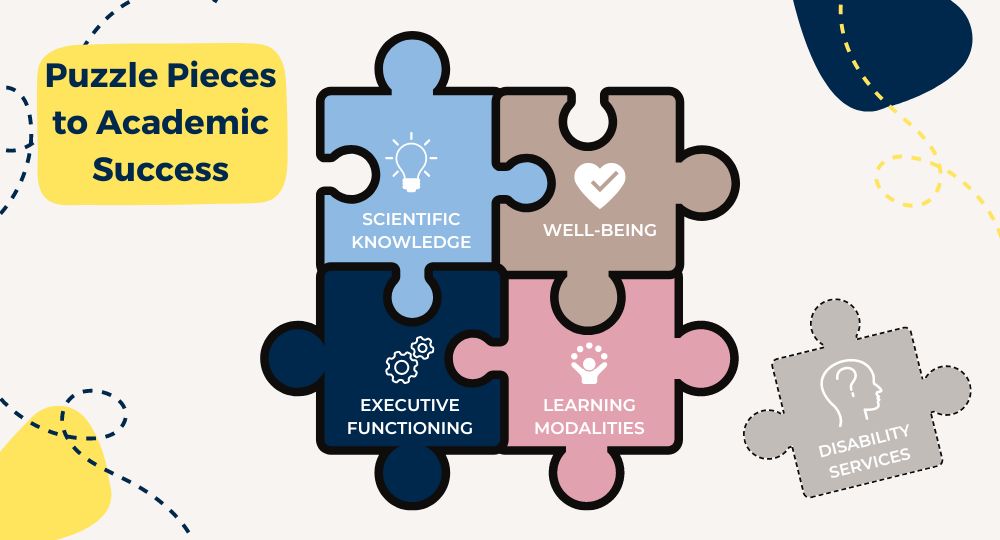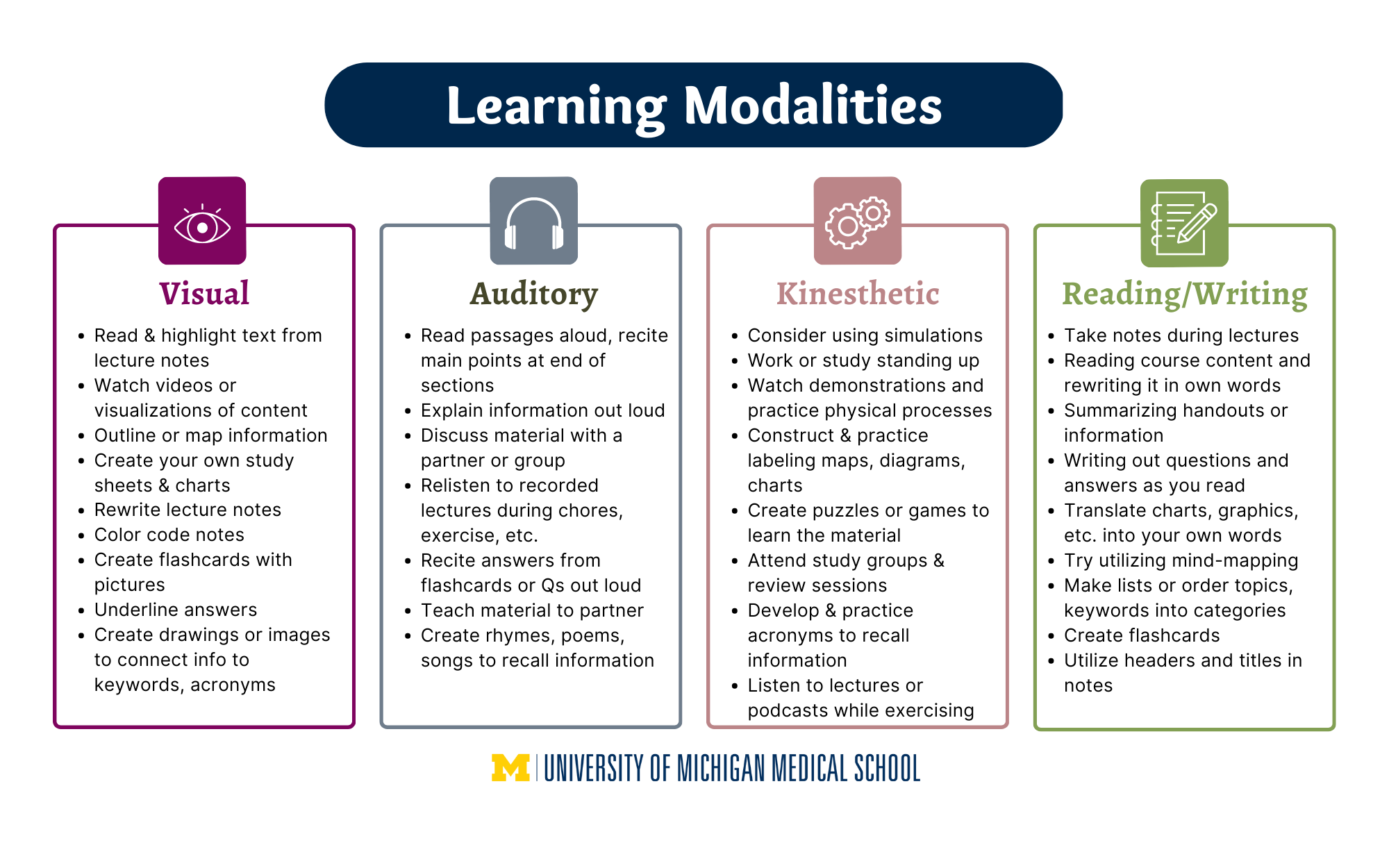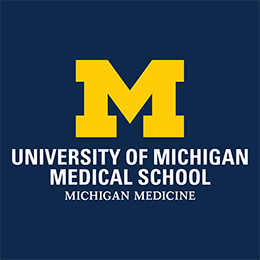
The Learning & Accessibility team is here to support your medical school journey. That includes all the puzzle pieces that affect learning! All students are welcome to meet with our specialists for tips, feedback and resources to boost their learning. Students often meet with us for support in areas such as, but not limited to: study strategies, motivation, Step study plans, test-taking strategies and connecting with tutors. Links to some learning resources are provided below. If you are interested in setting up a meeting or have questions or concerns, please reach out to one of our team members:
JT Sangsland, M.Ed.
OMSE: Learning & Accessibility Services Manager
Jensen Whitmore
OMSE: Learning & Accessibility Services Specialist
5100 THSL
1135 Catherine Street
734-936-1512
Medical school course loads can impact one’s ability to keep a flexible schedule. In addition, we each have responsibilities, loved ones and interests that hold importance in our lives outside of schooling. To effectively manage your responsibilities, it’s important that students take the time to care for their well-being with self-care.
The World Health Organization (WHO) defines self-care as “the ability of individuals…to promote health, prevent diseases, maintain health and cope with illness and disability with or without the support of a healthcare provider…” In summary, it’s what an individual does to care for themselves and to promote their wellness.
When looking to pinpoint what pieces of self-care you may need, it’s important to identify the stressors that you may be facing (sleep deprivation, emotional regulation, illness, etc.). Below are some linked resources regarding the importance of pinpointing and finding self-care solutions for these stressors:
Sleep:
Emotional Regulation:
Illness/Injury:
If you find yourself ill, you may need to discuss time taken to recover or heal. Find more information on resources regarding acute illness and injuries here.
In cognitive science, executive functioning is defined as skills that are mental processes that enable us to plan, focus attention, remember instructions and juggle multiple tasks. Motivation, avoidance, test anxiety and time management can all play a role in effective executive functioning.
Motivation
Test Anxiety
Time Management
Your scientific knowledge is another key part of your academic success in medical school. Below are some resources that you may want to try to help you diagnose pieces of content that you need more review in. To quote Code Blue, “Remember that you are human and any mistakes you make are part of the lifelong learning that is so vital to the profession you are entering!”
General Resources:
-
Code Blue: A guide to medical school, created by UMMS medical students with an overview of your academic journey at UMMS and numerous study resources organized by curriculum and year.
Think about how you build new information into your memory. How much do you skim over the surface or how much do you push to understand? How well do you remember something that you have learned?
Become an Active Learner
Learning how to study effectively and efficiently requires deliberate and reflective effort over time. Become an active learner to help support your academic success! Active learners talk, listen, read and reflect on what they are learning to become more actively involved in their academic assignments and study plans.
Instead of only re-reading notes or slides, active learners think and talk about the material, ask and answer questions in class, and generate study materials such as flashcards, outlines, and study guides. Active learners also quiz themselves by studying with classmates or writing and reviewing their exam questions.
Effective active learners also use multiple modalities when studying. Learning modalities are often mistakenly referred to as “learning styles.” While individuals may have preferred “styles,” or modes, of studying, a study plan that utilizes multiple modalities engages learners in a true learning process or active learning. Try selecting 1-2 from each column to try during your study sessions:

Tutoring:
Tutoring is a great tool for individuals to be in charge of their learning, discuss content with peers and get support on high-yield content. Tutoring is for all students! Interested in utilizing a tutor or have questions about the Tutoring program? Find more information on tutoring by clicking here or reach out to Jensen Whitmore, learning & accessibility services specialist.
Have you self-evaluated, tried some of these strategies and continue to run into barriers? There may be an underlying disability or concern. Please refer to the Disability Services page and/or reach out to the Learning & Accessibility team for a discussion.
